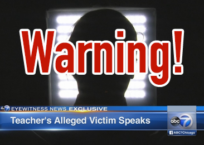
The recent ruling in Mahmoud v Taylor has broader implications than you might think. On the surface, it may seem to apply only to the assignment of reading materials in the classroom.
But it’s a lot more than that.
The School Board in Montgomery County, Maryland, began including LGBTQ+ stories and books in its curriculum for preschool through 12th grade in 2022. Initially, the board notified parents when these stories would be assigned or read and allowed them to opt out. Less than a year later, the district reversed course and rescinded the parental opt-out policy. The board claimed that they “could not accommodate the growing number of opt-out requests without causing significant disruptions to the classroom environment.”
Parents from a variety of religious backgrounds—Muslim, Roman Catholic, Ukrainian Orthodox—filed suit, arguing that the school district’s refusal to allow parents to opt out violated their First Amendment rights to direct their children’s religious upbringing and their free exercise of religion.
The parents won the case in a decisive 6-3 decision.
Those who sided with the school board characterized the plaintiff parents as
- attempting to roll back inclusive education due to ideological motivation, particularly around LGBTQ+ topics, under the guise of religious liberty
- trying to censor the curriculum and exclude marginalized identities
- undermining educational cohesion and disrupting the classroom environment
- hypocritically focusing their moral objections only on LGBTQ+ materials rather than on other moral or cultural content, reflecting the absence of a consistent principle
- fragmenting public education and eroding the shared civic foundation that schools are meant to provide
Those advancing these arguments may believe them, but they are wrong when viewed in the historical context.
The use of LGBTQ-inclusive books in Montgomery County’s school curriculum was explicitly justified through a Social Emotional Learning (SEL) framework. Over the last decade or so, SEL has emerged as the primary vehicle for introducing progressive ideologies into public school classrooms.
The goal of the progressives who have captured many school boards has been to indoctrinate our children in leftist ideologies. Normalizing LGBTQ+ lifestyles is just one element of their efforts. Social justice and equity activism, the use of an intersectional lens to drive inclusion, comprehensive sexuality education, reproductive justice, and the promotion of sexual experimentation among our youth, as well as other leftist initiatives, are all part of their platform.
This has been going on for many decades. It began with John Dewey in the late 1800s and early 1900s. He was the father of progressive education. Marxist principles and his atheism profoundly influenced his educational theories. According to Canadian researcher and expert on Dewey, William Brooks:
“Dewey was convinced that the introduction of manual training and the activity method would create a vigorous occupational spirit in the educational process. The school would affiliate itself with the life of the child and the community. It would become an embryonic socialist community. The new school communities would become incubators for peaceful social revolution. Dewey saw the new school providing a unique and irresistible example to capitalist society because its aim was ‘not the economic value of the product but the development of social power and insight.’ School, liberated from the religious influences — which, like Marx, he regarded as medieval superstitions — would demonstrate to all that it was neither God nor Providence but the earth and man’s labour that were responsible for all progress.”
Dewey’s progressivism has completely captured schools of education throughout the United States, shaping their curricula, teaching methods, and social purpose for generations. His perspective is so ingrained in our educational system that it may be impossible to extract it.
Progressives control school boards, schools, teachers’ unions, teacher associations, libraries, state departments of education, and the federal education establishment.
From the early 1900s, education policy has been dominated by progressives, including the federal government policy. Federal education policy was elevated to the cabinet level with the creation of the Department of Health, Education, and Welfare in 1953. It got a higher Cabinet-level profile when Carter created the U.S. Department of Education in 1979.
Greater federal attention to education policy did nothing to improve results. In the mid-80s, there was a brief conservative effort to reverse progressive education policies during the Reagan Administration. Under the direction of H.T. Bell, Secretary of Education, the National Commission on Education in 1983 issued its report “A Nation at Risk: The Imperative for Educational Reform,” warning that the American education system was failing to provide students with the skills needed to compete globally, thus threatening the nation’s future.
The report declared a “rising tide of mediocrity” in schools and called for urgent reforms, including higher academic standards, more rigorous curricula, and improved teacher quality. The findings prompted an increased focus on accountability in education for teachers and for student performance.
It didn’t last long.
The Clinton Administration doubled down on progressive education policies with the passage of the “Goals 2000: Educate America Act in 1994.” The act encouraged states to implement improvements that addressed their students’ holistic development, academic, emotional, and relational. Not coincidentally, in the same year, the Collaboration for Academic, Social, and Emotional Learning (CASEL) was founded by some of the same individuals who promoted the Goals 2000 Act.
Schools throughout the country developed programs that addressed the “whole child.”
By the late 90s and early 2000s, progressives took aim at sex ed materials in the schools. In 2008, a group of 40 progressives from the fields of health education, sexuality education, public health, public policy, philanthropy, and advocacy convened for a two-day meeting to create a strategic plan for sexuality education policy and implementation. The meeting was organized by Advocates for Youth, the Sexuality Information Education Council of the United States (SIECUS), and Answer and was financially sponsored by the Ford Foundation, the George Gund Foundation, and the Grove Foundation.
Following this meeting, a group of 58 progressive sex educators was selected to collaborate on the development of the first edition of the National Sexuality Education Standards (NSES). Representatives from Advocates for Youth, SIECUS, and Answer played a significant role in developing these standards.
These so-called standards were billed as a way to improve the whole child’s development, and they even claimed that educating children in comprehensive sex education (CSE) would improve their academic performance. The Obama Administration pushed these standards from the beginning of his first term and even stopped funding abstinence-only programs in 2010. His Department of Education made a concerted effort to coerce school districts nationwide to implement the NSES.
The 2016 election of Donald Trump galvanized parent groups who branded CSE and the social justice initiatives that were part of the NSES as ideological indoctrination. Legislative pushback surfaced in at least 25 states.
Facing rejection, NSES partners and allied funders pivoted. Rather than fight over what was taught, they reframed how all teaching should occur—through SEL competencies that appear nonpartisan but inherently embed the same worldview as presented in the NSES curriculum. Instead of having separate sex ed classes or classes that taught directly about the range of sexualities (LGBTQIAA+), they began to incorporate these lifestyles as stories used in all other courses, the books read in English, the narrative math problems, the families discussed in social studies, etc., all of which fit seamlessly into the SEL (whole child) initiatives.
Instead of one class to opt out of, every class teaches a worldview that is hostile to the tenets of Christianity and many other religions.
The progressive worldview has become so infused into our schools that it would be best for parents to homeschool their children or send them to a private school that teaches principles aligned with their own worldview. It will take a considerable amount of time to reverse all this.
The progressives intentionally engineered the problem that led to the ruling in Mahmoud v. Taylor. From the beginning, they planned to create an environment where there was no alternative to children being indoctrinated into a progressive worldview, no way to opt out, no ability of parents to veto what the progressives wanted taught.
Ultimately, Christians need to retake control of school boards, library boards, village councils, and state and local elected offices. That’s the long game, though. In the meantime, the ruling in Mahmoud v. Taylor will provide some relief to parents who are unable to homeschool or send their children to private schools.
As long as there is a sympathetic U.S. Department of Justice, any parent can file a complaint if the principles laid out in the decision are violated.
The Mahmoud decision establishes a new legal standard about what constitutes a burden on religious exercise. Previously, courts required evidence of “coercion” – that schools were compelling students to change their religious beliefs. The Court now says that just being exposed to instructional content that is hostile to a family’s religion may violate our guarantee of religious freedom unless schools provide notice and opt-out opportunities.
Justice Samuel Alito wrote that the school board’s
“introduction of the ‘LGBTQ+-inclusive’ storybooks, along with its decision to withhold opt-outs, places an unconstitutional burden on the parents’ rights to the free exercise of their religion.”
The ruling imposes immediate requirements on public school districts nationwide. Schools must now:
- Provide advance notice when potentially objectionable content will be used.
- Allow parents to have their children excused from instruction involving contested materials.
- Apply strict scrutiny to policies that substantially interfere with or undermine religious beliefs parents want to instill.
This ruling also could be used to challenge the following laws:
- Universal Mental Health Screening: The mandatory nature, combined with passive consent procedures, creates clear constitutional vulnerabilities.
- Expanded Confidential Counseling Laws: Complete parental exclusion from mental health decisions directly conflicts with Mahmoud’s emphasis on parental authority.
- Comprehensive Healthcare Consent Laws: The broad scope of medical decisions that minors can make without parental involvement creates multiple opportunities for challenge.
- Religious Exemption Restrictions: Burdensome procedures for exercising religious exemptions could be streamlined.
The principles in Mahmoud v. Taylor possibly could be used even to challenge the Illinois law that allows girls as young as 13 to get an abortion without parental consent or even notification, without even the authorization of a judge or any adult.
Mahmoud establishes that parental rights claims involving religious exercise must be evaluated under strict scrutiny, which is “the highest level of constitutional protection” in American law. Under this standard, “a government must demonstrate that its policy ‘advances interests of the highest order’ and is narrowly tailored to achieve those interests.”
How does allowing a 13-year-old to obtain an abortion without any adult guidance meet these standards?
In the Montgomery County case, the U.S. Supreme Court applied strict scrutiny and found that the government’s policy failed the “narrow tailoring” requirement. The Court noted that
“the Board’s conduct in continuing to permit opt-outs in a variety of other circumstances undermines its assertion that its no-opt-out policy is necessary to serve [its stated] interest”.
The Court emphasized:
“Schools have a ‘compelling interest in having an undisrupted school session conducive to the students’ learning,’ but the Board’s selective application of its no-opt-out policy demonstrates that complete elimination of opt-outs is not the least restrictive means of achieving this goal”.
The Court also established a “normative content” test to distinguish between neutral educational exposure and constitutional violations. There are constitutional problems, says the Court, when materials “exert upon children a psychological ‘pressure to conform’ to their specific viewpoints” and are “designed to present certain values and beliefs as things to be celebrated, and certain contrary values and beliefs as things to be rejected.”
The Court looked beyond just the content of books to examine
“teacher guidance documents distributed by [Montgomery County Public Schools] MCPS” and found that “the Board specifically encouraged teachers to reinforce this viewpoint and reprimand any children who disagree.”
Justice Alito added that none of the arguments presented by MCPS or the lower courts persuaded the U.S. Supreme Court to question whether a burden on religious exercise existed. The Court rejected the notion that the books simply exposed students to differing ideas or promoted mutual respect, since the majority determined that the storybooks clearly advanced a specific viewpoint.
The Court established that parents have a fundamental constitutional right to control their children’s religious development that extends into public school settings. Justice Alito wrote:
“The right of parents ‘to direct the religious upbringing of their children’ would be an empty promise if it did not follow those children into the public school classroom.”
Government action violates the Free Exercise Clause when it poses “a very real threat of undermining” the religious beliefs and practices that parents wish to instill in their children, according to the Court. This creates a protective framework that compels every school to consider the impact of its policies on family religious authority.
The U.S. Supreme Court has restored the rights of parents to direct the education of their children, a right that has been eroding for the last 25 years, since the Troxel v. Granville decision created uncertainty. There was a lack of a clear majority in that opinion, which left questions about the exact standard of review and in the scope of parental rights protection.
That is not the case with Mahmoud. The only question now is whether parents will begin to exercise their rights vigorously. . . and their responsibilities to their children diligently.























